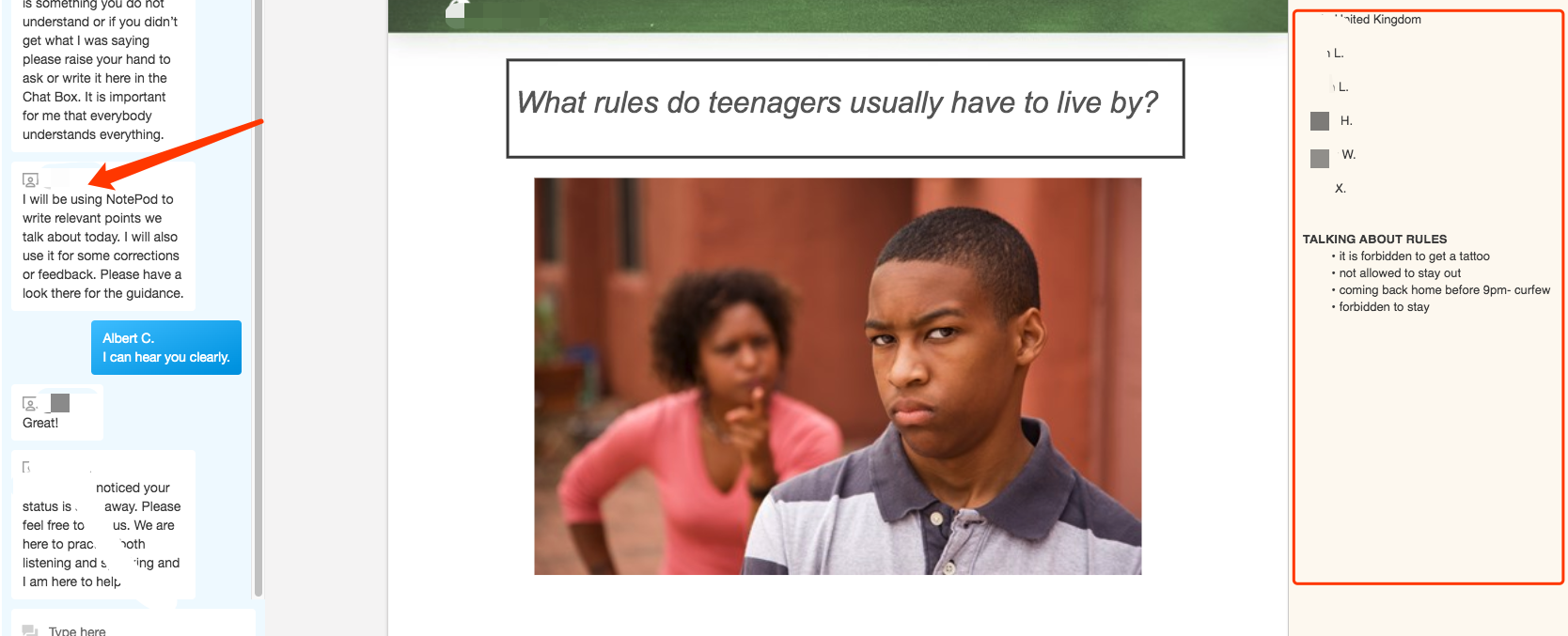Note: this post is different to "going to be doing" vs "going to do", which just cites part from somewhere else, without any further analysis and thinking. Furthermore, none of the answers to that post answers my question - the situations where "will (going to) be doing" is more appropriate.
I will be participating in IELTS test next Tuesday afternoon.
In an online class, the teacher says the following at the beginning of the lesson.
I will be using NotePod (pointed out by red rectangle) to write relevant points we talk about today.
I guess "will be using" is more appropriate than "will use" there, right?
A post explains
This "tense" is used for reporting a scheduled activity with special focus on its timing— as if one is standing in the future and experiencing the flow of the time. The focus is on the temporary, ongoing, or repetitive nature of the activity.
I understand the grammar rules of those verb tenses and the difference between this group
I am going to drive home tomorrow.
I am going to be driving home tomorrow.
The former is just convey my activity in the near future while the latter probably makes an implication that "don't disturb me as I am driving in that time"
However, in the following situations, I don't see the difference between 2 verb tenses.
Welcome back to this class. Today's lesson is for the IELTS students who are going to be taking the IELTS test. it's for everybody to be honest with you. this lesson is useful for anybody who needs to do some writing.
who are going to take the IELTS test ...

